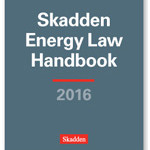Key Provisions in Software Settlement Agreements
By Keli Johnson Swan
Scott & Scott LLP
The end of the year is a busy time for software publishers and entities like the BSA | The Software Alliance (“BSA”) and the Software & Industry Information Association (“SIIA”) to resolve an audit target’s copyright infringement dispute by entering into settlement agreements. While it may be advantageous for a company to reach a quick resolution by the end of the year in order to resolve any outstanding disputes or potential monetary penalties, it is critical not to rush through settlement without carefully considering provisions in a draft settlement agreement.
The following are a few provisions that should be carefully considered before executing an agreement.
Release of Liability.
The release of liability is arguably the most critical provision in a settlement agreement because without it, a company is still exposed for any potential copyright infringement claims. These provisions should be read very carefully because software publishers sometimes limit the provisions to specific circumstances, and make the release of liability contingent on several factors, including post-settlement remediation and other ongoing responsibilities.
Warranty.
Often software settlement agreements contain a provision that the release of liability is contingent on the accuracy of the audit materials that were submitted. This is particularly important because a company should make every effort to ensure that it conducts an accurate self-audit immediately after the audit request is received.
Post-settlement obligations.
The BSA and SIIA have specific terms it requires in settlement agreements, which requires that any software that was discovered to be unlicensed during the course of the audit is uninstalled or replaced with licensed software. Additionally, a software publisher or the BSA or SIIA may seek to include provisions that are more restrictive than the software license agreement requires, such as future on-site inspections. These terms generally can be negotiated so it is important to seek legal counsel before executing a settlement agreement.
Confidentiality.
While some targets of software audits wish to share their experiences to educate others, most companies prefer not to have any negative publicity related to resolving copyright infringement claims. The confidentiality provision should be carefully crafted to prevent the software publishers, BSA, or SIIA from publishing a press release about the settlement agreement.
These are just a few issues to consider when reaching a settlement to resolve alleged copyright infringement claims. If in doubt, contact an attorney experienced in software licensing and copyright infringement matters.




![By SPDuffy527 (Own work) [CC BY-SA 3.0 (http://creativecommons.org/licenses/by-sa/3.0)], via Wikimedia Commons](http://generalcounselnews.com/wp-content/uploads/2016/11/Raymond-Kethledge.jpg)






